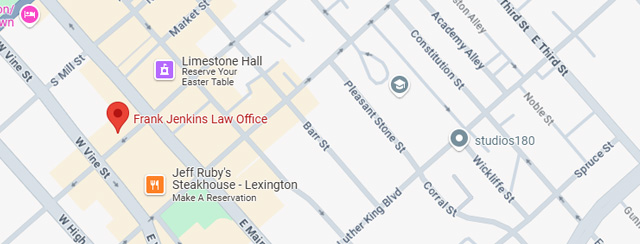- ATV accidents
- Brain Injuries
- Bus Accident
- Car Accidents
- Construction Accident
- Distracted Driving
- Drugged Driving Accident
- DUI
- Firm News
- Mass Tort
- Medical Malpractice
- Motorcycle Accidents
- Pedestrian Accidents
- Personal Injury
- Product Liability
- Safety
- Social Security Disability
- Truck Accidents
- Vehicle Accidents
- Workers Compensation
- Workplace Injuries
An emergency room nurse in Kentucky has seen a surge of suspected COVID-19 cases in the last week as the number of people testing positive for the novel coronavirus continues to rise. In fact, several of her coworkers are currently ill and test results confirmed they are infected with the same dreaded virus that is now terrorizing the country, even though they had followed safety protocols and had been wearing personal protective equipment when interacting with patients. Although she loves her job and feels an ethical obligation to do everything she can to help during this pandemic, she is also scared senseless that she’s going to inadvertently catch the virus and pass it to her two young children, but she’s especially concerned about exposing her immunocompromised husband who just completed chemotherapy for Hodgkin lymphoma. She can’t afford to quit or take an unpaid leave of absence. However, while watching the news over the weekend, she saw that new federal legislation was signed that provides employees with more options concerning paid leave from work, and she wondered if it applies to her.
Good question.
The lightening speed at which COVID-19 appears to be spreading across the United States has left everyone scrambling to create new legislation, guidelines, and recommendations to accommodate the evolving crisis. The Families First Coronavirus Response Act (FFCRA) was signed by President Trump on March 18 and will go into effect on April 1, 2020. FFCRA expands upon the Family and Medical Leave Act of 1993. FFCRA includes many provisions, such as free coronavirus testing, but the focus in this writing will be on how the new legislation affects paid leave for employees.
To begin, the FFCRA provisions regarding paid leave apply only to businesses with less than five hundred employees. Additionally, businesses with fewer than fifty employees may be exempt from this new law by applying for an exemption with the Secretary of Labor based upon the premise that the paid leave could “jeopardize the viability” of the business.(1)
Another exception is that health care providers may exclude their employees from the FFCRA “public health emergency leave” requirements. The Department of Labor recently clarified their definition of healthcare provider with the following:
For the purposes of employees who may be exempted from paid sick leave or expanded family and medical leave by their employer under the FFCRA, a health care provider is anyone employed at any doctor’s office, hospital, health care center, clinic, post-secondary educational institution offering health care instruction, medical school, local health department or agency, nursing facility, retirement facility, nursing home, home health care provider, any facility that performs laboratory or medical testing, pharmacy, or any similar institution, employer, or entity. This includes any permanent or temporary institution, facility, location, or site where medical services are provided that are similar to such institutions.
This definition includes any individual employed by an entity that contracts with any of the above institutions, employers, or entities institutions to provide services or to maintain the operation of the facility. This also includes anyone employed by any entity that provides medical services, produces medical products, or is otherwise involved in the making of COVID-19 related medical equipment, tests, drugs, vaccines, diagnostic vehicles, or treatments. This also includes any individual that the highest official of a state or territory, including the District of Columbia, determines is a health care provider necessary for that state’s or territory’s or the District of Columbia’s response to COVID-19.(2)
If you do qualify for the new paid leave provisions in FFCRA, then you can expect those to take effect on April 1, 2020. These leave benefits are not retroactive and will not affect any leave taken prior to April 1. Persons must have been employed for at least thirty days prior in order to receive these benefits.
Here’s what to expect:
- Your first ten days of leave will not be paid by your employer, but you may elect to use any paid vacation days, personal days, or sick days accrued.
- Once your ten days have passed, you are entitled to two weeks (up to eighty hours) of paid sick time at your regular pay rate if you are unable to work due to being quarantined and/or you’re experiencing COVID-19 symptoms and seeking a medical diagnosis. The quarantine stipulation is pursuant to federal, state, or a local government order, or upon the advice of a healthcare provider; Or
- Once your ten days have passed, you’re entitled to two weeks (up to eighty hours) of paid sick time at two-thirds your regular pay rate if you’re unable to work because of a need to care for an individual who is subject to quarantine, or to care for a minor child (under eighteen years of age) whose school or child care provider is closed or unavailable due to COVID-19.
- Up to an additional ten weeks of paid family and medical leave at two-thirds your regular pay rate is available if you’re unable to work due to having to care for a minor child whose school or child care provider is closed or unavailable for reasons related to COVID-19.
- Part-time employees are eligible for paid leave on a pro rata basis.
Upcoming blog topics will cover other aspects of the Families First Coronavirus Response Act, in addition to further information on paid leave provisions. Be sure to check back weekly.
In the meantime, stay safe, Kentucky.
References:
1. Lowey, & M., N. (2020, March 18). H.R.6201 – 116th Congress (2019-2020): Families First Coronavirus Response Act. Retrieved March 26, 2020, from https://www.congress.gov/bill/116th-congress/house-bill/6201
2. Families First Coronavirus Response Act: Questions and Answers. (n.d.). Retrieved March 30, 2020, from https://www.dol.gov/agencies/whd/pandemic/ffcra-questions


